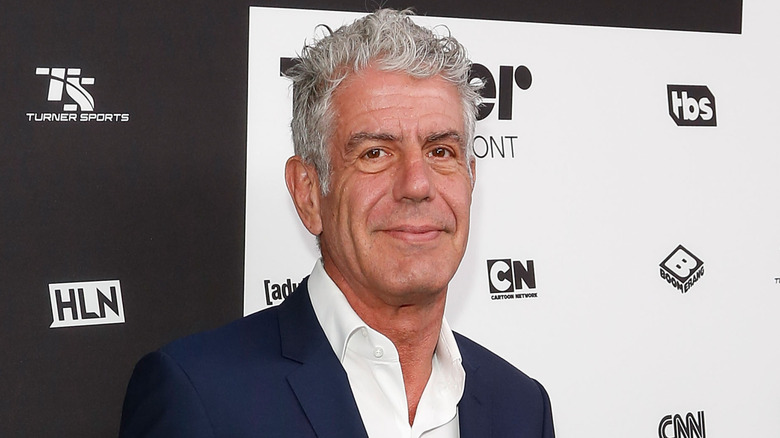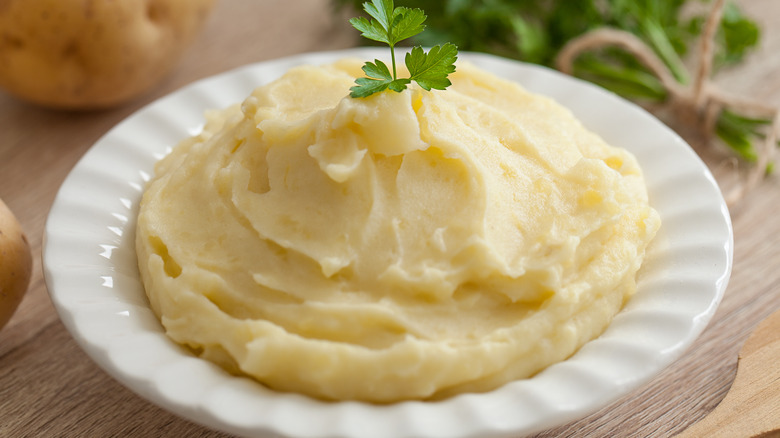Anthony Bourdain's Tip For Mashed Potatoes Came From Another Culinary Legend
Anthony Bourdain was known as a renegade chef who brazenly pushed the boundaries of how people see food. He acted as a plain-speaking steward of sorts, helping folks navigate a complex culinary landscape, all while gently nudging us toward what's good and what's truly special in the sometimes intimidatingly vast world of food. When it came to his mashed potatoes, though, the guy kept things pretty simple. That's because Bourdain was experienced enough to know that all you really need for a stellar mash is four ingredients: potatoes, milk (or, in his case, heavy cream), salt, and butter — lots and lots of butter.
Now, Bourdain wasn't the first to figure out that, when making mashed potatoes, "less is more" should be the motto for the ingredient list — though certainly not for the butter quantity. His recipe, which boasts an impressive ratio of roughly 2 parts potato to 1 part butter, was modeled after French chef Joël Robuchon's world-famous puree de pommes.
Robuchon, the most decorated Michelin-starred chef in history, pulled potatoes out of the metaphorical dirt and into the spotlight in the '90s, displaying them (in his perfectly pureed way) as an ingredient worthy of the fine dining stage. It was his technique — and the sheer mass of butter he used — that allowed the dish to sing. The same is true for Bourdain's presentation, though he made some slight alterations.
The same potatoes, just tweaked
Joël Robuchon's style of cooking, called cuisine actuelle, was designed to showcase each ingredient as an individual and recognizable part of the dish. For his beloved puree de pommes, the chef just used La Ratte potatoes and butter, with the addition of milk and salt.
The idea that all potatoes are equally good for mashing is a myth about mashed potatoes you should stop believing. Anthony Bourdain, following Robuchon's lead, opted for the similar (yet more U.S.-accessible) Yukon Gold potatoes for his interpretation. He, too, used an excessive amount of butter (6 sticks to 4 pounds of potatoes, to be exact), though slightly less than Robuchon's recipe, due to Bourdain's use of heavy cream in place of milk.
Although your favorite traditional mashed potato recipe may have you simply mash your potatoes to varying degrees of a rustic texture using a masher, Bourdain's and Robuchon's versions require much more intensive labor if you want to achieve their dreamy texture and taste. While Robuchon's recipe has the boiled potatoes run first through a food mill and then through a sieve drum (presumably to strain out the skins he preferred to leave on), Bourdain's recipe puts the potatoes through a potato ricer; the tool, similar to a garlic press, leaves a slightly more toothsome texture than the food mill. The butter and milk are also blended in slowly, allowing the butter and potato to meld together in a way that feels inextricable.

